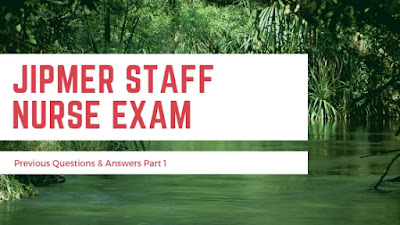Table of Contents
JIPMER Staff Nurse Exam Previous Questions & Answers Series 1
Please Subscribe to get regular email updates in your Inbox
Total Quiz Questions=25
Mark/Question= 5
Total Marks=125
These Questions are asked on JIPMER Puducherry staff nurse exam in 2013, here is first 25 nursing questions and answers are included.
JIPMER Question Paper Pdf Download: Click Here
JIPMER Staff Nurse Exam Previous Question Paper 1 QP- GBD
Thank You, Please Subscribe for All Upcoming Questions Series or You can Comment below your Email address get all updates in your mail inbox
